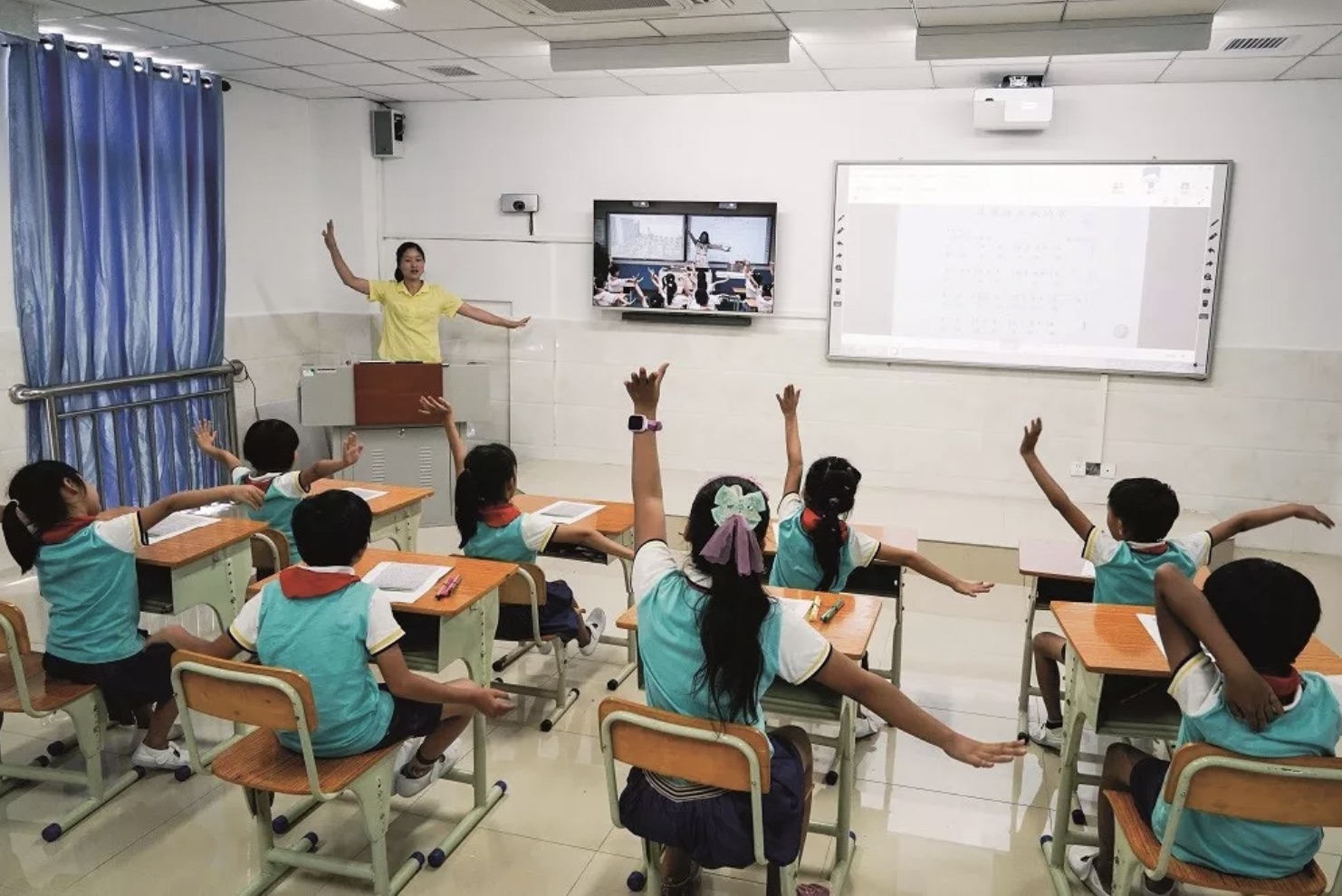China Business Corner: Introducing Yinyu, the virtual KTV app whose users are singing up a storm

Happy New Year and best wishes from China Business Corner! We’re a weekly window into Chinese-language coverage of business, technology, and the broader economy, brought to you by co-writers Huang Sizhuo and Jordan Schneider (who also hosts the ChinaEconTalk podcast). Sign up here to get this column in your inbox every Thursday.
China’s latest entertainment app addiction is 音遇 (yīn yù), which doesn’t have an official English name but translates pretty literally to Music Meetup. In just over three months, this app has garnered daily average user numbers in the millions and made a home at the top of App Store charts.
Here’s how it works: six strangers come together in a room where, after hearing a short clip of user-sung versions of hit songs (a clever sidestep of IP issues), they have to sing the succeeding verse. A forgiving AI then gives a thumbs up or down based on your performance, and over the next 10 minutes, crowns a winner. There are also ways to send fellow players gifts and level up on a leaderboard.
Here’s a clip where the AI cuts a child (and, ahem, your correspondent, at the 1:19 mark) down to size:
The fun comes from not just singing your KTV favorites, but the interaction in the virtual space. Players forget the lines halfway through, make up their own versions to the lyrics, get interrupted by their coworkers or parents. The atmosphere of these instant friend groups is in my experience a surprisingly cheerful and positive one, with little to no trolling to be found.
Given the imprecision and arbitrariness of the AI judge, I don’t think this will ever evolve into something people pour hours and hours into. However, I’d argue that the development of this app has changed social norms in a way that gives those with stage fright — and screechy voices — license to belt away in public places.
I’m of two minds as to this app’s potential in the West. On the one hand, it’s fun as hell. Who wouldn’t want to break up their day belting out 15 seconds of Kelly Clarkson in the backseat of a car? But singing is much more normalized in China, and it’s unfortunately difficult to predict how trolling and harassment might make this app problematic in the West.
Here are two stories from the Chinese internet that delve deeper into this phenomenon:
2018’s Final Dark Horse: ‘Music Meetup’
2018最后一匹黑马“音遇”
Written by Yinzi Xuan 尹子璇, published on 猎云网 (Hunting Cloud), December 31, 2018
A Deep Analysis of ‘Music Meetup’
深度分析音遇
Written by Song Wenqun 宋文群, Tencent employee, self-published on December 4, 2018
Yinzi Xuan, author of the top link, argues that the app’s appeal comes from combining “singing, dating, and competitive games,” giving you a sense that you’re in a KTV room with strangers.
“Music Meetup” is founded by former Bytedance employees and has received significant investment from Bytedance. It shows many hallmarks of a Bytedance app: like Tik Tok, it deemphasizes social features in favor of entertainment. However, the app’s role in the “Bytedance-Tencent war for attention,” as Yinzi Xuan puts it, is murky.
Song Wenqun is relatively bearish on the app’s potential for future growth. He finds the gameplay loop relatively shallow in comparison to megahits like PUBG Mobile and Honor of Kings. Further, the fact that you have to have the courage to sing out loud puts a ceiling on the type of people who will interact, and restricts gameplay times. The office worker on lunch break or with five minutes to spare on the toilet isn’t necessarily going to fire up a rousing rendition of Hou Lai 后来.

Two other notable stories from this past week:
A new era of a new era: 2018 China box office results
2018年全国电影总票房为609.76亿元,比上年559.11亿元增长9.06%
Written by Hǎo Jiéméi 郝杰梅, China Film News 中国电影报
China is the second largest movie market, and Deloitte 2014 China Movie Industry forecasts that China will surpass the United States to have the highest number of moviegoers and annual revenue by 2020. On January 1, the state-owned newspaper China Film News published the box office results of 2018 in a positive tone. According to their figures, China’s total box office has hit a record of $8.84 billion, up 9.06% from the previous year.
In particular, China has produced 902 films this year, which contributed about 62.15% of total box office revenue. And there are 20 domestic films grossing a half-billion in the market, among which Operation Red Sea (or 红海行动 in Chinese) is the biggest winner, at an estimated $529 million usd. Further highlights include China’s diverse mix of movies according to genre, continuing structural reforms, and industry efforts to engage in international cooperation.
However, a TMTPost article written by Lǚ Shìmíng 吕世明 argues that the Fan Bingbing tax and “yin-yang contract” scandal has negatively impacted the performance of the movie industry. At the same time, he admits that the Chinese audience has become more mature, and movies with some depth, such as Forever Young (无问西东 wú wèn xī dōng) and A Cool Fish (无名之辈 wúmíng zhī bèi), have done really well.


The future of online education in the marketplace
在线教育:资本迷失已让行业红利消失?
Written by 刘以秦, Caijing 财经
Education has always been a heated topic among Chinese families, but because of unbalanced growth between the developed areas and rural areas in China, the education quality varies from one place to another. However, online education — and live streaming — offers an opportunity to narrow the education quality gap. As a result, online education companies have become very attractive in the capital market. In 2018, there were 18 companies with a focus on online education listed in the market.
But this article warns of a downswing, as there is a conflict between education and capital: education is a marathon, while capital is a sprint for short-term profits.
The author analyzes several companies currently under threat in the industry. Three leading education companies, New Oriental (新东方), TAL (好未来), and VIPKID — founded in 1993, 2003, and 2013, respectively — are all facing troubles. Half of New Oriental lecturers are not eligible to tutor students without relevant licenses. And TAL was christened “Fake Finance” by famous fraud finders Muddy Waters, resulting in a dramatic stock decrease. As for VIPKID, it was able to gain users quickly thanks to its online presence, but it has found it difficult to penetrate third-tier cities, while people in top-tier cities have begun turning to offline education.








